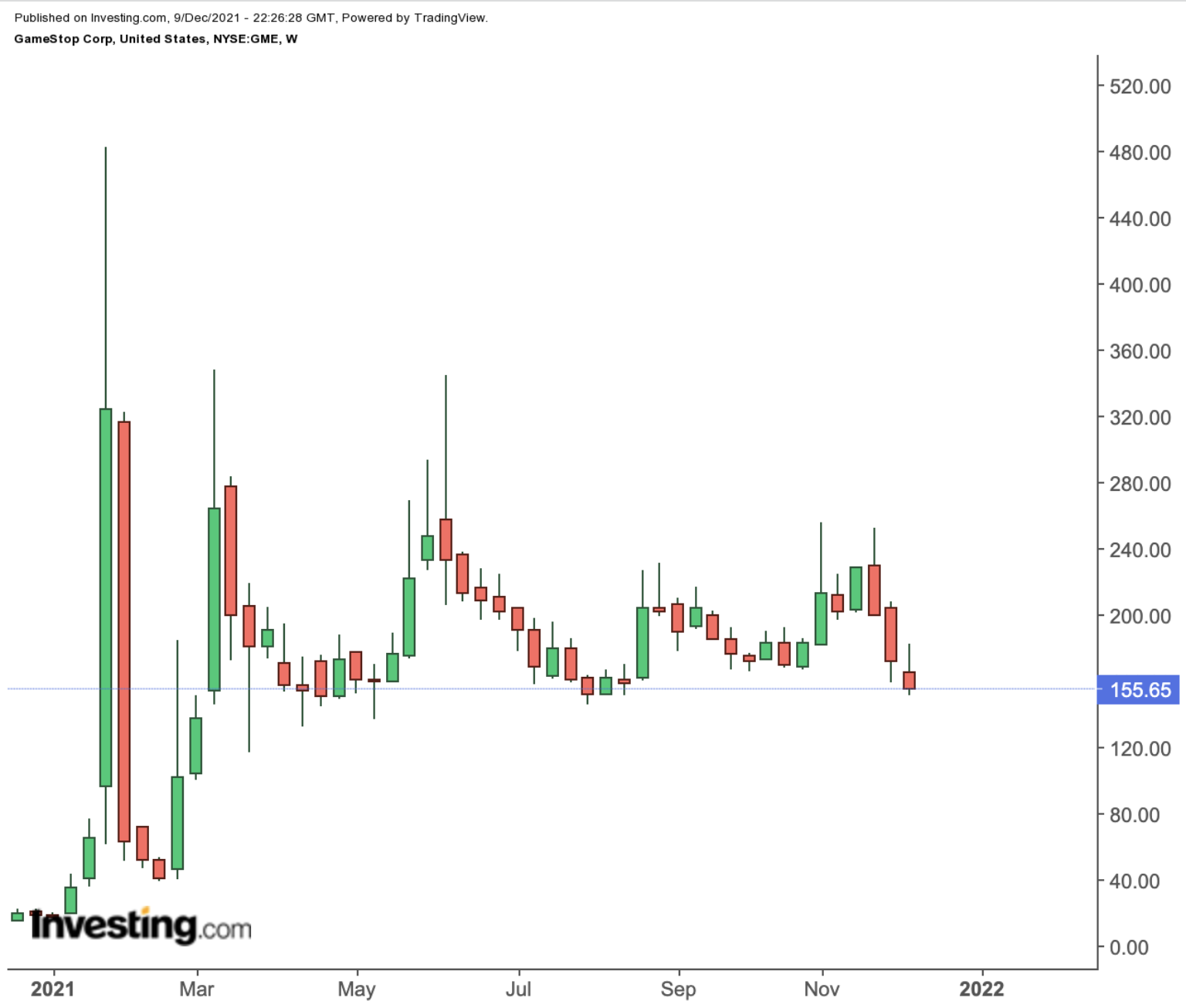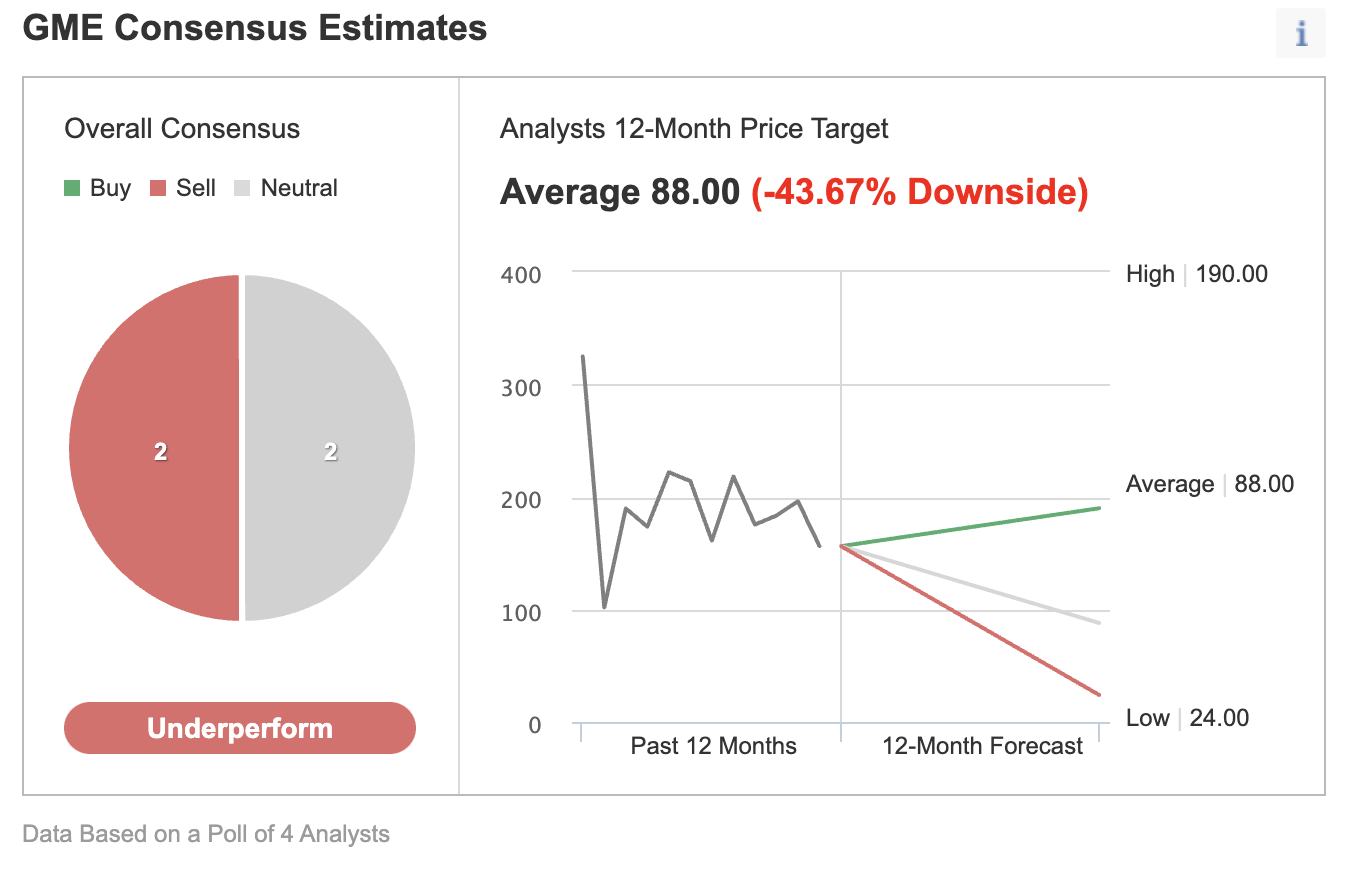GameStop (NYSE:GME), a stock favored by the Reddit-inspired crowd of retail investors, is losing its shine in the absence of a well-crafted turnaround plan.
Millions of retail traders, who have fuelled the stock’s 835% surge this year on hopes chairman Ryan Cohen is putting the struggling bricks-and-mortar retailer on a sustainable growth path, were disappointed yesterday when he didn’t appear on an earnings call.
Its shares dropped about 6% to $163.08 during early Thursday trade after the electronics vendor reported third-quarter earnings that showed mixed results. The stock closed yesterday at $155.65.

Net sales rose 29% to $1.3 billion in the three-month period that ended Oct. 30, exceeding analysts’ consensus forecast of $1.19 billion. But its adjusted loss widened to $105.4 million, or $1.39 a share, compared with a loss of $18.8 million, or $0.29, in the same period a year earlier.
Cohen, an activist investor who became GameStop chairman after building a 13% stake, has put together a new management team. He hired former Amazon.com veterans Matt Furlong and Mike Recupero as the company’s chief executive and financial officer, respectively.
But beyond this management shake-up, he has disclosed little about his strategic direction that will justify a rally that pushed GME stock from about $12 to $483 a share at one point during the last 52 weeks.
A Long-Term Bet
After years of double-digit declines in sales, revenue has increased every quarter this year, and the company’s debt is almost gone, but GameStop has been struggling to turn a profit for the past three years as its business suffers from the fast-changing trends in the gaming industry.
In recent years, video-game players are mostly downloading their favorite titles over the internet, instead of buying the hard copies that the company specializes in selling. CEO Matt Furlong told investors on a conference call late Wednesday that long-term revenue growth is the primary metric by which investors should assess GME execution.
He said:
"During the quarter, we focused on expanding our selection, accelerating delivery speeds and improving the customer experience. We also made long-term investments in our infrastructure, talent and technology.”
“Our focus on the long-term means we will continuously prioritize growth and market leadership over short-term margins.”
Analysts on Wall Street, however, remained unimpressed. They have been warning investors not to buy GME stock. The rationale: its current value isn't justified based on fundamentals. The video-game retailer is currently covered by four analysts, down from nine at the beginning of the year.
As of Thursday, there are two hold and two sell ratings on GameStop, according to an Investing.com poll, with a 46% downside risk and an average price target on the stock of $88.

Another reason that could continue to keep GME under pressure is the environment of risk-aversion as new COVID variants emerge and the central bank moves closer to raising interest rates. The stock is down about 35% from the most recent high on Nov. 22 amid the emergence of the Omicron variant.
Bottom Line
GameStop continues to remain a highly volatile stock with few details available about its turnaround plan. Though its meteoric rise this year significantly improved its financial health, there is no guarantee its business will be able to take on, let alone compete, with tech behemoths, including Amazon (NASDAQ:AMZN).
